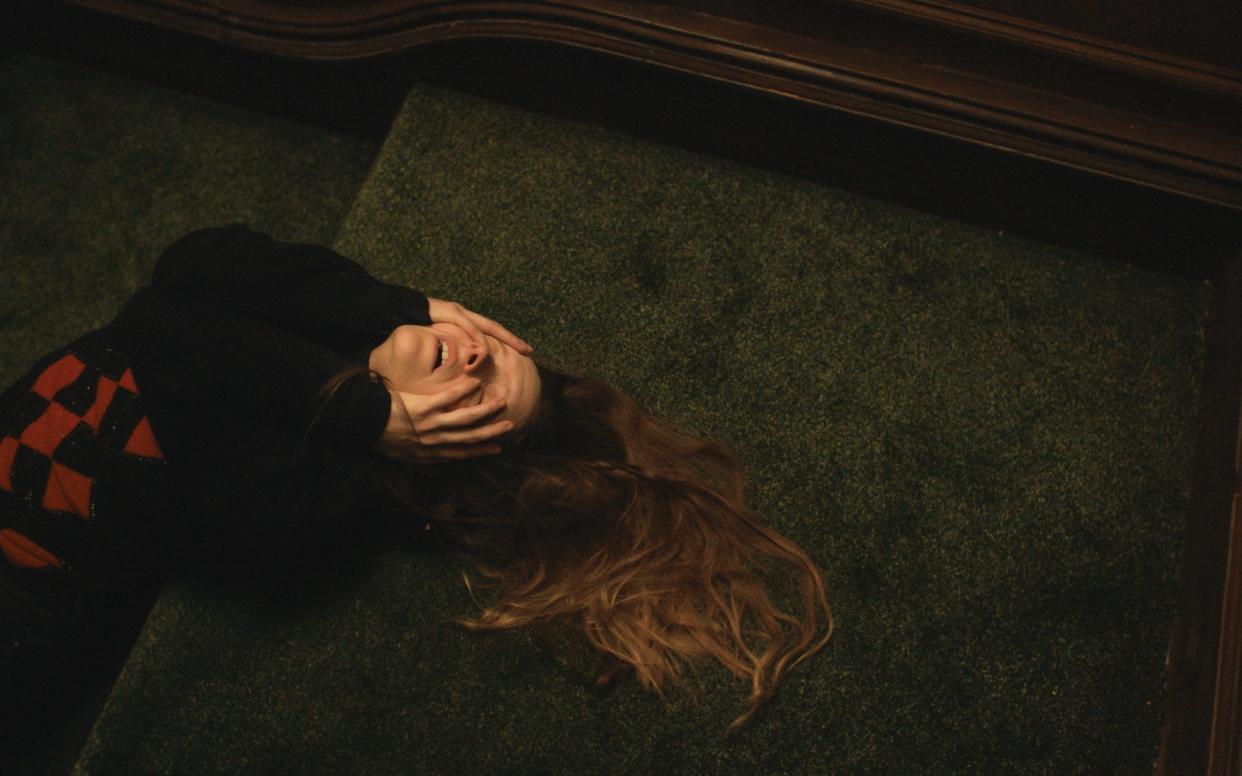Meet Saint Maud, cinema's first female incel

- Oops!Something went wrong.Please try again later.
If you’re a filmmaker hunting for funding, you have to be able to sell your project in a single sentence, and when Rose Glass was pitching Saint Maud, she came up with a cracker. “Imagine if Travis Bickle was a young Catholic nurse from Scarborough” was the gist of the pitch that secured her funding from Film4 and the BFI among others, and understandably so: who wouldn’t want to watch a Taxi Driver-era Robert De Niro in a neatly pressed healthcare tunic, rampaging past the seafront amusements?
Of course that’s not an exact synopsis of Glass’s mesmerisingly unsettling debut feature, which opened in cinemas today. (You can see her talk more about the process of bringing the film to life in our world exclusive video below.) But it does correctly place its lead character in a great tradition of ticking time bombs that have been freezing cinema-goers’ blood since long before Travis first slid into his cab.
Over the last 10 or so years, the term ‘incel’ – short for involuntarily celibate – has been increasingly used to describe this character type, wherever it appears in fiction or the real world. (A number of mass murderers in the United States and elsewhere have explicitly described themselves as incels.) Maud, as brilliantly played by Morfydd Clark, is an extremely rare (and possibly unique) female example, but she shares many of the group’s defining characteristics.
She’s a sexless loner and misanthrope who harbours a very specific horror and/or resentment of female sexual agency, wrestles with self-loathing, believes society at large is on the road to ruin, and sees herself as having some kind of ‘higher calling’ than the rank-and-file members of the human herd. Joaquin Phoenix’s Joker was a classic incel character, as were Ryan Gosling’s borderline-anti-heroes in Drive and Blade Runner 2049. Lars von Trier’s profoundly stomach-churning art-prank satire The House that Jack Built was a kind of incel epic, though please feel free to take my word for it.
Prior to the emergence of incel, though, there was another, arguably even more chilling term in circulation for these characters, and it was coined by Travis himself. (Or rather Paul Schrader, who wrote the film.) During one of his habitual late-night trawls around Manhattan, Travis describes himself in voiceover as “God’s lonely man” – a phrase Schrader took from the title of an essay by Thomas Wolfe, which also supplied the epigraph for Taxi Driver’s screenplay. The point of Wolfe’s essay was that loneliness isn’t some elite affliction, as Travis believes it to be: rather, it’s a fundamental plank of the human experience.
Yet time and again throughout his career, Schrader has been drawn towards characters who see themselves as a kind of chosen loner, set apart from the thrum and flow of ordinary human experience. As a critic in his 20s, Schrader was a champion of the films of Robert Bresson – not least his 1959 masterpiece Pickpocket, about a lonely young man who becomes a petty thief. Just as Bresson had managed to bring to cinema the existentialist angst that throbbed through novels like Dostoyevsky’s Crime and Punishment and Camus’ The Outsider, so too has Schrader repeatedly transplanted Bresson’s Pickpocket to modern-day America – not just in Taxi Driver, but also American Gigolo, Light Sleeper, and most recently First Reformed.
A Vietnam veteran, a male escort, a drug dealer and a Protestant minister sound more like the lead characters in a walk-into-a-bar joke than obvious cinematic fellow-travellers. But the God’s Lonely Man mindset isn’t confined to a particular time, place or trade. In a diner in 1970s New York, Travis can stare at two Alka Seltzer tablets fizzing in a glass of water and see a reflection of the same inner turmoil Maud feels 45 years later in a Scarborough pub, as she watches a whirlpool apparently form in a pint of beer.
“You must be the loneliest girl I’ve ever seen,” Maud is told at one point by Amanda (Jennifer Ehle), her patient. Maybe so. But in at least one crucial respect, she’s also just one of the boys.

